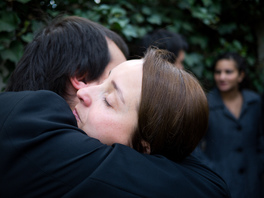
Afraid to say the wrong thing, many people stay away following a death. But it is important to understand how our actions, or lack of action, impact the loss that friends, family members, colleagues, and community members are experiencing.
Here's what you should not do:
• Do not stay away; death is isolating and when you stay away, it will make the bereaved feel even more alone.
• Do not avoid returning phone calls from the bereaved.
• Do not refuse the bereaved when you are asked to help.
• Do not disregard family wishes for donations and make them instead to your pet cause.
• Do not avoid communicating the difficult news of the death, placing the burden on the bereaved.
• Do not ask the bereaved to do something for you when they can barely take care of themselves.
• Do not ask the bereaved for details.
• Do not ask for a possession of the deceased or ask for something back that you had given them.
• Do not pay a visit and expect to be fed or entertained.
• Do not expect the bereaved to reciprocate your kindness – this is one of those occasions where the bereaved will pay it forward, when they are able.
Robbie Miller Kaplan is an author who writes from a unique perspective as a mother who has lost two children. She has written How to Say It When You Don't Know What to Say, a guide to help readers communicate effectively when those they care about experience loss, available in ebooks for "Illness & Death," "Suicide," "Miscarriage," "Death of a Child," "Death of a Stillborn or Newborn Baby," "Pet Loss," "Caregiver Responsibilities," "Divorce" and "Job Loss." All titles are in Amazon's Kindle Store.
 RSS Feed
RSS Feed
